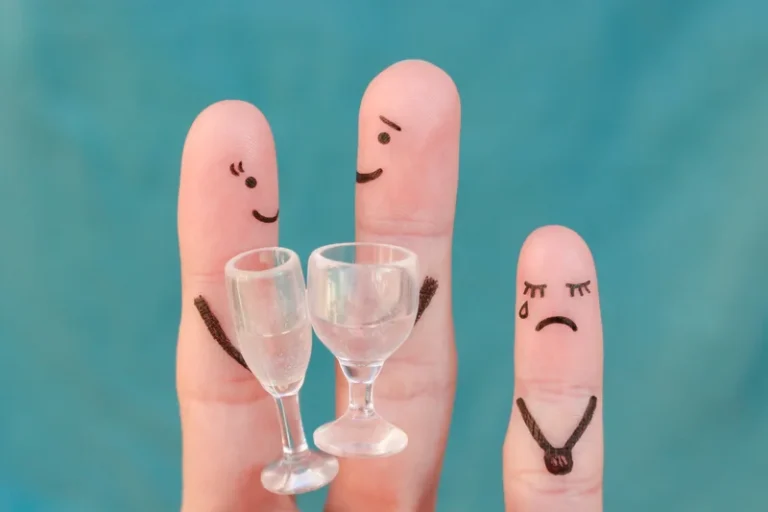Step 1 A A. Why the 12-step Journey Begins with Powerlessness FHE Health

When you follow this format, you are participating in Step 1 and admitting to the group that you may be struggling with alcohol addiction. Having had a spiritual awakening as the result of these Steps, we tried to carry this message to alcoholics, and to practice these principles in all our affairs. Susan is no stranger to the fields of behavioral health and addiction. She has over 25 years of experience, working in an inpatient setting, an outpatient setting, acute stabilization and nearly all other settings in the realm of addiction recovery. Acknowledging your powerlessness is liberating because it helps you realize the things you are powerless over so you can devote your energy to your actions–the things you can control. You may be powerless over addiction, but you aren’t powerless, period.
How Will AA First Step Help Me Recover From Addiction?
- Many people suffering from alcoholism continue to find success in recovery by participating in AA’s program.
- There is often confusion about whether being powerless is a positive or a negative thing.
- Admitting powerlessness means accepting what is true and what is not.
- For example, LifeRing Secular Recovery, SMART Recovery, HAMS, and Secular Organizations for Sobriety (SOS) focus on self-empowerment rather than looking outside yourself for help.
- Step One AA emphasizes the futility of attempting to manage something that’s proven uncontrollable.
After many years of denial, recovery can begin for individuals struggling with alcohol and their families with one simple admission of being powerless over alcohol. This is the first step of the 12 step programs of Alcoholics Anonymous and Al-Anon programs, which have been attended by millions of people over the last several decades. The impact of drugs and alcohol on your body over time renders your natural brain functions and mechanisms powerless. To acknowledge the way these substances have impacted your life is to admit that alcohol and drugs have made your life unmanageable and you can’t fix it on your own. The concept behind the references to God or a higher power in the 12-step program is to support addicts in the understanding that they need to find a source of strength that’s greater than themselves alone.
- “We admitted we were powerless over alcohol—that our lives had become unmanageable.”
- A medical detox will help you safely and comfortably withdraw from drugs & alcohol.
- Bill Wilson and Dr. Bob Smith, the two men who founded AA in 1935, drew their inspiration for the Twelve Steps from the Oxford Group.
- Because they are in denial, they still think that they have control over alcohol.
Step 5: Integrity
- Spero Recovery Center is a peer-based residential recovery program.
- You’ll often hear things like “I don’t have a drinking problem”, “It’s just one drink”, or “I can handle a beer”.
- When you admit that you are powerless to addiction, you are empowered to reach out for support.
- Even if you don’t believe in God, you can still undergo the AA first step.
- Regardless of how you got to this point, Step 1 of AA is merely realizing that your alcohol abuse disorder was interfering negatively with your life, and you need to change.
Addiction treatment centers often talk about “powerless” as a way to describe the feeling of being unable to control one’s life. This is different from the inability to manage one’s life, which is what most people think of when they hear the word unmanageable. In fact, many people who struggle with addiction feel like they have little power over their disease but still want to change. Recovery is a journey that can seem intimidating if you’re just beginning, but in AA, you just have to take it one step at a time. Asking for help seems like such a simple concept, but admitting powerlessness is a humbling, courageous act. In recovery, we learn that it takes far more strength to surrender and admit powerlessness than it does to try to control addiction by ourselves.
List of Examples of Powerlessness in Sobriety
Humility is one of the simplest principles to understand because it’s straightforward. When you’re humble, you’re cognizant of the fact that you’re not a major part of the bigger picture. Humility in daily practice means never seeing yourself as more important than you are. Wilson met Akron surgeon Robert Smith at an Oxford Group meeting.
Family and Children’s Programs

By studying the program, how it works, and each of its principles, you can determine if this type of program is ideal for you. Many people find it so helpful that they continue to meet with the group in order to help others as they work to maintain their own recovery. Research indicates that a few psychotherapy treatments can improve the symptoms of alcohol use disorder, including the observed lack of control over how much or how often a person uses alcohol. Understanding powerlessness in sobriety can help you manage your addiction. By relinquishing control over your addiction, you are now free to get help and support from others.
What Does It Mean to Be Powerless Over Alcohol and Other Drugs?
A crucial part of completing AA Step one revolves around admitting powerlessness. Step 1 of AA requires a great deal of strength and courage as you accept that alcohol has taken over your life. By seeking help for alcohol powerless over alcohol addiction in Step 1 of AA, you admit that you’re powerless to stop drinking on your own. Your counselor can help you learn strategies to stop drinking and can be one of the people you reach out to when you are struggling.
- Once AA managed to help 500 people achieve sobriety, it attracted a more national audience.
- This understanding of the word obsession explains why we keep going back to pick up the first drink or drug.
- The Alcoholics Anonymous (AA) Big Book says “powerless over alcohol” as its first principle.
- If you’re interested in learning how you can leverage a 12-step group to help your recovery, contact FHE Health and learn about our aftercare and support group options.
- Some people believe AA is intricately tied to religion by seeking a “higher power.” Rather, AA members are encouraged to understand they’re powerless in changing their addictive behavior.
Recovery Coaching

How many times have we had these kinds of thoughts and believed them? Let’s face it when we control it, we’re not enjoying it, and when we’re enjoying it, we’re not controlling it. With the Twelve Steps, there is no hard and fast timeline.


